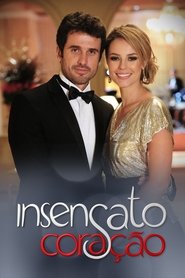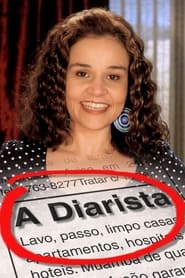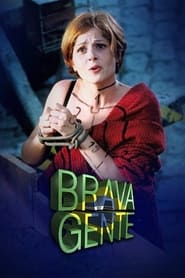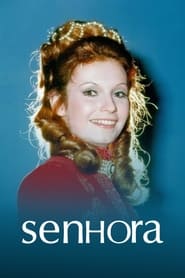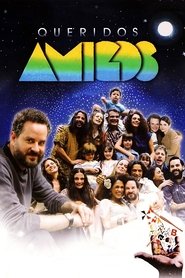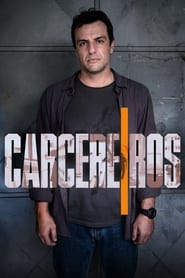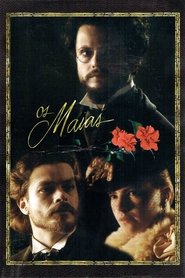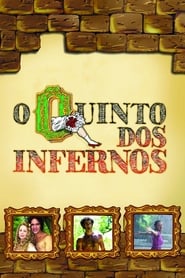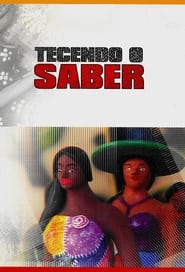Tv Globo TV Series - Page 14
-
Insensato Coração
2011
star 5.9Insensato Coração is a Brazilian telenovela that first aired on Rede Globo in 2011. -
A Diarista
2004
star 7.3It shows the life and problems of Marinete, a cleaning lady with a short temper. She always ends up depending on her friends, who are distracted by any stupid thing and leave her to solve things on her own. -
A Life to Die For
2021
star 4.7Tells the story of the quartet formed by a friendly and bankrupt ex-football player, a rich and snobby surgeon, a powerful and arrogant executive and a scammer with a heart of stone. They are victims of a plane crash on the same day they met each other and end up dying. When they meet Death, they are told that their time to go has not yet come and that they must return to life to deal with their personal issues. However, Death warns that, in a year, one of them will actually die and the four decide to take this second chance to achieve their greatest goals in life. -
Brava Gente
2000
star 7Brava Gente was a television series aired by TV Globo in Brazil between 2000 and 2003, initially as a special year-end. The program was adapted from stories and national stories, and plays by famous playwrights, screenwriters and signed by a number represented by several actors and actresses. The genres of the stories varied each week with the style of each director or author. Brava Gente in the stories ranged from comedies and dramas. In all 53 episodes were shown, broadcast on Tuesday nights. -
Se Joga
2019
Se Joga
2019
-
Senhora
1975
star 8The soap opera follows the story of young Aurélia Camargo (Norma Blum), a girl who falls in love with the ambitious young journalist Fernando Seixas (Cláudio Marzo), who also falls in love with her, but rejects her when he receives an invitation to marry Adelaide (Fátima Freire), the daughter of Tavares do Amaral (Felipe Wagner), a wealthy banker. Feeling abandoned by her great love, Aurélia dreams of one day having him back. Until, when she turns 18, she is surprised with an inheritance from her grandfather, and becomes a very rich woman, allowing her to create her own rules for her life. However, for the society of the time, it was not good form for a woman to enjoy such independence. For this reason, Aurélia begins to rely on a distant relative, Dona Firmina Mascarenhas (Zilka Sallaberry), to act as her mother, and on the administrator Mr. Lemos (Alberto Perez), to guide her in business. So, she sees a great opportunity to have Fernando in her life again. -
Queridos Amigos
2008
star 9Reserved, intelligent and generous, Leo has achieved professional success and now lives secluded in Serra da Cantareira, alongside young Karina. He discovers that he is ill, and decides to reunite the old friends of the 1970s, with whom he fought the military regime. -
Os Maias
2001
star 6.9Pedro da Maia, meets a beautiful woman called Maria Monforte with whom he gets married despite his father's objection. The marriage produces a son, Carlos Eduardo, and a daughter. Some time later, Maria Monforte falls in love with Tancredo and runs away to Italy with him, taking her daughter along. When Pedro finds out, he goes with his son to his father's house where he commits suicide. Carlos stays at his grandfather's house and is educated by him. Carlos, becomes a doctor and opens his own office. Later he meets a gorgeous woman, Maria Eduarda. The two fall in love and have dozens of nights together. Eventually Carlos finds out later that Maria lied to him about her past and he starts fearing the worst. In the end, Carlos finds out that Maria is his sister. He informs her that they are siblings and that they cannot live like this anymore. Carlos, to forget his tragedies, goes for a trip around the world. -
The Ultimate Fighter: Brasil
2012
star 7The Ultimate Fighter: Brazil is an installment of the Ultimate Fighting Championship-produced reality television series The Ultimate Fighter. This season marked the first time the show was filmed, in its entirety, outside of Las Vegas, Nevada, and consisted of 12 episodes and a live finale in Brazil. The season tournament finale appeared on pay-per-view in June 2012. It started filming in February 2012 and was in Portuguese. The season was produced by Floresta, a Brazilian production company, and aired in Brazil on Globo. Each episode was broadcast over the Internet at TUF.tv each Sunday night and later aired on Fuel TV in a marathon leading up to the finale. -
Malu Mulher
1979
Malu Mulher
1979
Malu Mulher was a TV series broadcast by Rede Globo from May 24, 1979 to December 22, 1980, written and directed by Daniel Filho. The theme song, Começar de novo, was a great hit in the voice of one of Brazil's greatest popular female singer, Simone. -
O Outro
1987
O Outro
1987
-
Sex Appeal
1993
star 5.8It tells the story of young people who dream of a modeling career and the rise of their lives. It all starts when the Sex Appeal agency, led by Edgar and Cecilia, runs a contest that will award the winner two hundred thousand dollars and the possibility of living abroad. The main competitors are Angel, Vilma, Eva and Claudinha. They will do anything to earn, even things they would never imagine doing. -
Alma Gêmea
2005
star 6.4A young woman is fated to relive the love of an earlier life. Separated by time, young Serena and botanist Rafael surmount all obstacles as they live a love that is stronger than fate itself. These challenges include the lovely but ambitious Cristina, who is obsessed by the rich botanist and driven nearly mad by her attempts to shatter their great love. A romantic comedy set in the 1940s, Soul Mate underscores the importance of love, family values and the ties of affection with a light touch and plenty of humor. -
The Fifth of Hell
2002
star 5.5O Quinto dos Infernos was a 2002 mini Brazilian historical comedy television series. It was written by Carlos Lombardi, and directed by Wolf Maya and 48 episodes were produced. The protagonist was Marcos Pasquim. -
Toma Lá, Dá Cá
2007
star 8.3Brazilian comedy about two couples living next to each other in the same building. This show explores the antics between the two couples.
